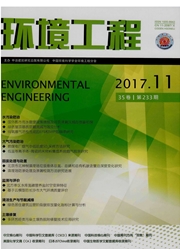

 中文摘要:
中文摘要:
随着现代工业的快速发展,带来的挥发性有机废气(VOCs)排放到大气中,逐渐增加的VOCs已成为当今关注的重要环境问题之一。生物净化VOCs具有易操作、维护方便、净化效率高、运行费用低、安全性高、无二次污染等优点而备受世界各国的广泛关注。VOCs废气生物处理技术原理是将有机污染物在微生物作用下转换为无害或者低害的物质,而微生物则起到了至关重要的作用。综述了生物滤池、生物滴滤、生物洗涤3种净化工艺的原理和研究进展,将3种反应器优缺点进行了对比;最后论述了该技术当前存在问题及发展趋势。
 英文摘要:
英文摘要:
With the rapid industrial development,a large quantity of volatile organic compounds( VOCs) was released from various plants and industrial processes. The increasing presence of VOCs in the atmosphere had been one of considerable environmental problems nowadays. Biopurification of volatile organic compounds VOCs had advantages of simple operation,convenient maintenance,high efficiency,low operating cost,high safety and small secondary pollution,and it had received extensive attention of all countries in the world. The principle of biopurification was that VOCs were converted to harmless or less harmful substances,in which microorganisms played a key role. The paper reviewed the principle and development of the biofilter,biotrickling filter and bioscrubber which were three major types of biopurification of VOCs,and discussed the advantage and disadvantage of the former three bioreactors. Eventually,current problems and trends of biopurification were predicted and discussed as well.
 同期刊论文项目
同期刊论文项目
 同项目期刊论文
同项目期刊论文
 期刊信息
期刊信息
